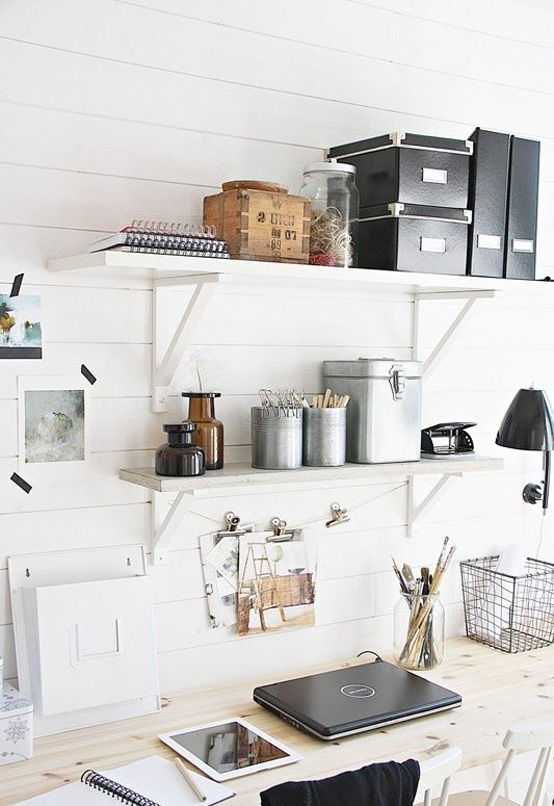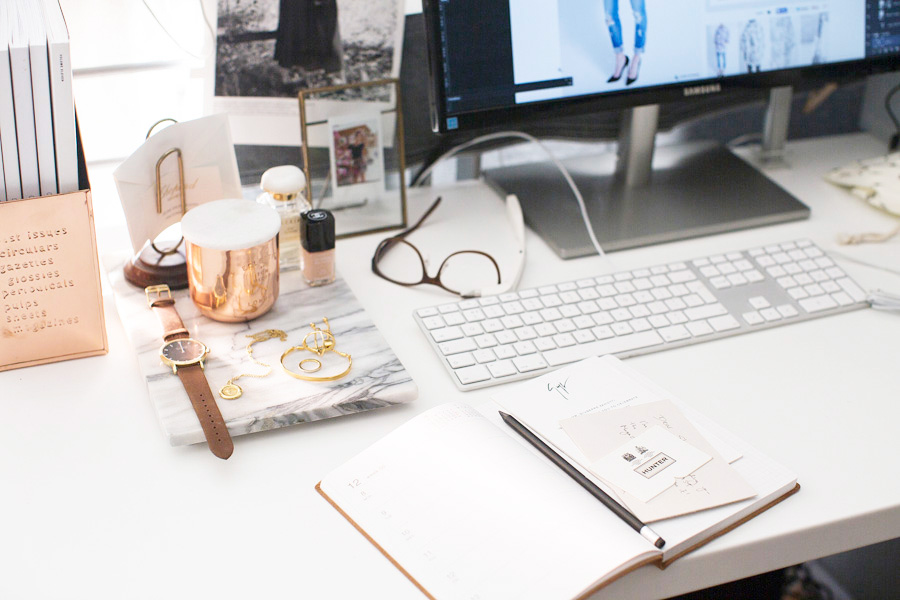Just under six months ago, I took the plunge and left my job to go freelance and start The Lifestyle Edit. I’d come up with the idea a year before taking the plunge and had been working on the site intensely for at least six months before going full time. I’d put money aside and had dedicated countless hours researching the financial implications of getting my idea off the ground but I don’t think anything truly prepares you until you finally do it.
To say the last six months has been a major learning curve would be a serious understatement. I’m learning something new every day. As many friends told me before I started, no matter how well you think you’ve budgeted, everything costs at least double what you expected, and that’s if you’re lucky. Then there’s understanding the numbers – you know, monthly cash flow, projections and expenses and that’s before you start thinking about tax and the minefield that can be. If you’re toying with following suit, here are the three lessons I’ve learnt that will help you make the switch:
Save an emergency fund: If you’re starting your own business, I can’t stress enough how important it is to have a significant amount of money set aside. I promise you, a little bit of extra cash just isn’t going to cut it, especially if you have bills and expenses to pay. Opinions on just how much you should have saved varies but the general rule is to have an emergency fund equal to at least six months of basic living expenses. In other words, you should be able to pay your rent and bills for at least six months. This will help take the pressure off in the first few months so will allow you stay focused solely on the business. It’s worth noting, though, that this money will only keep your basic expenses covered. You will need to have a separate bank set aside for actually getting the business off the ground and an emergency fund for after the six months, to deal with situations where your income may not be as high as your expenses are.
 Keep business money and personal money separate: We touched on this a little bit recently when we were talking about the importance of building business credit that’s independent of your personal credit. The same principle applies here. Whatever type of business you have, whether you are a sole proprietor or fully incorporated, you need to have separate bank accounts for business and personal money. Aside from the credit implications, it makes doing things like tax that little bit easier because you don’t have to spend time trying to remember whether certain transactions were personal or for your business. Keeping things separate means that’s automatically taken care of, making it easier to analyse your cash flow. You can notice things like the months that your income generally drops, in order to create an action plan to boost your income those months to compensate for the dips in business. It can also help you see whether you need to trim back in certain areas of where you can afford to invest a little bit more.
Keep business money and personal money separate: We touched on this a little bit recently when we were talking about the importance of building business credit that’s independent of your personal credit. The same principle applies here. Whatever type of business you have, whether you are a sole proprietor or fully incorporated, you need to have separate bank accounts for business and personal money. Aside from the credit implications, it makes doing things like tax that little bit easier because you don’t have to spend time trying to remember whether certain transactions were personal or for your business. Keeping things separate means that’s automatically taken care of, making it easier to analyse your cash flow. You can notice things like the months that your income generally drops, in order to create an action plan to boost your income those months to compensate for the dips in business. It can also help you see whether you need to trim back in certain areas of where you can afford to invest a little bit more.
Set aside money for taxes as you go along: When you’re used to tax automatically being deducted from your salary, remembering to put money aside for taxes when you first go alone can be difficult, just because you’re not used to it. Dependant on the type of business you have, you may be liable for lots of different types of tax, which can quickly add up if you’re not on the ball. Most experts say it’s the one area that self-employed people don’t save enough money for.
My other half had a stint of being self employed, so I knew a bit about taxes but what I didn’t realise was just how much tax I would need to pay. There are lots of good websites you can use to help calculate how much tax you’ll need to pay. I find this one is the best: http://www.ageuk.org.uk/money-matters/income-and-tax/tax-calculator/. The trick with tax is to always overestimate – you don’t want to have a nasty surprise come April. It’s always better get money back than be told that you owe money you hadn’t budgeted for.
The main lesson here, of course, is that taking the time to plan before diving headfirst is everything. But more than that, even if you have already set up on your own or decided to go freelance, it’s never too late to take the start being smart about your finances. So if you’ve taken the plunge today or have already taking the plunge, stop what you’re doing today and set up a separate business account, set up a direct debit to a savings account to handle your living expenses and seek advice from a financial expert. Because, yes, things can go belly up when you’re least expecting it, but they can also turn around just when you were about to give up.

